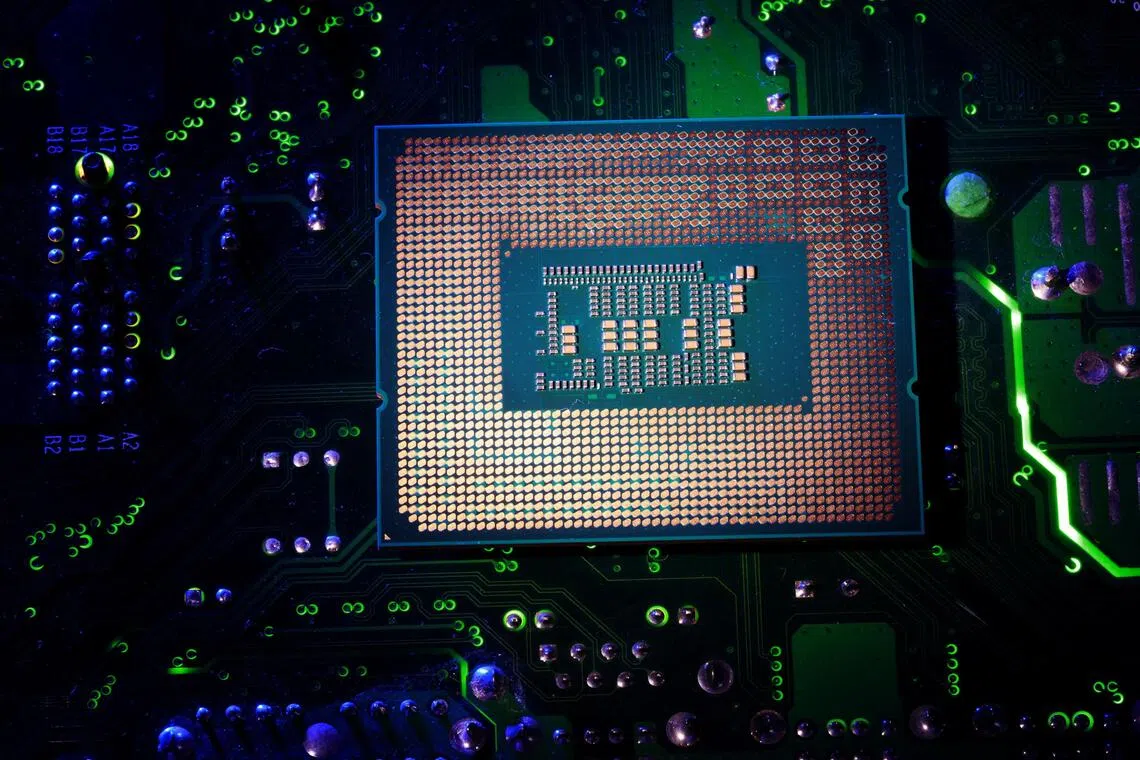Trump’s semiconductor tariff plan likely delayed, officials say
Sign up now: Get ST's newsletters delivered to your inbox

US officials are privately saying that they might not levy long-promised semiconductor tariffs soon.
PHOTO: REUTERS
WASHINGTON - US officials are privately saying that they might not levy long-promised semiconductor tariffs soon, potentially delaying a centrepiece of President Donald Trump’s economic agenda.
Officials relayed these messages over the last several days to stakeholders in government and private industry, according to two people with direct knowledge of the matter and a third person briefed on the conversations.
A fourth person following the matter also said the administration was taking a more cautious approach to avoid provoking China.
Trump aides are taking their time on chip tariffs as they work to avoid a rupture with Beijing over trade issues, which would risk a return to a tit-for-tat trade war and disruption of the flow of critical rare-earth minerals, according to two of the people.
Those people cautioned that no decision is final until the administration signs off on it, and also said that triple-digit tariffs could be imposed at any time. The sources spoke anonymously in order to recount private conversations about policy deliberations.
Mr Trump said in August that the US would impose a tariff of about 100 per cent on imports of semiconductors but exempted companies that are manufacturing in the US or have committed to do so.
Privately, over the last several months, Washington officials had told people that the administration would roll out the tariffs soon. That guidance has now changed as the administration has continued to debate the timing and other details.
Asked about the discussions, a White House spokesman and a Commerce Department official disputed that the administration had adjusted its posture.
“The Trump administration remains committed to using every lever of executive power to reshore the manufacturing that’s critical to our national and economic security,” said spokesman Kush Desai. “Any anonymously sourced reports suggesting otherwise are simply fake news.”
The Commerce official said: “There is no change in department policy regarding semiconductor 232 tariffs.”
Neither specified how soon tariffs that have been threatened since the early days of the Trump administration would be finalised, nor did they offer any other details.
The Chinese embassy in Washington said cooperation between the two countries on semiconductors is the best approach.
“We welcome the US to work with China to implement the consensus reached at the Busan summit between the two heads of state, create a favourable environment for mutually beneficial cooperation between companies from both sides, and jointly maintain the stability of the global semiconductor supply chain,” said spokesman Liu Pengyu.
Trump faces pressure on consumer prices
Any decision by the administration to slow down or narrow the scope of chip tariffs would come at a sensitive time for Mr Trump. The Republican President is facing growing consumer angst over prices heading into the holiday shopping season.
Hiking taxes on imported semiconductors could raise consumer costs on the gadgets they power, from refrigerators to smartphones.
Reuters reported in September that the Trump administration was looking at a plan that would also tax foreign electronic devices based on the number of chips in each one.
Mr Trump rolled back tariffs on more than 200 food products last week, but he has also said that his import taxes have made no significant contribution to inflation.
The US government shutdown has delayed recent data on consumer prices, but inflation has been running above the US Federal Reserve’s target since former president Joe Biden held office. REUTERS


